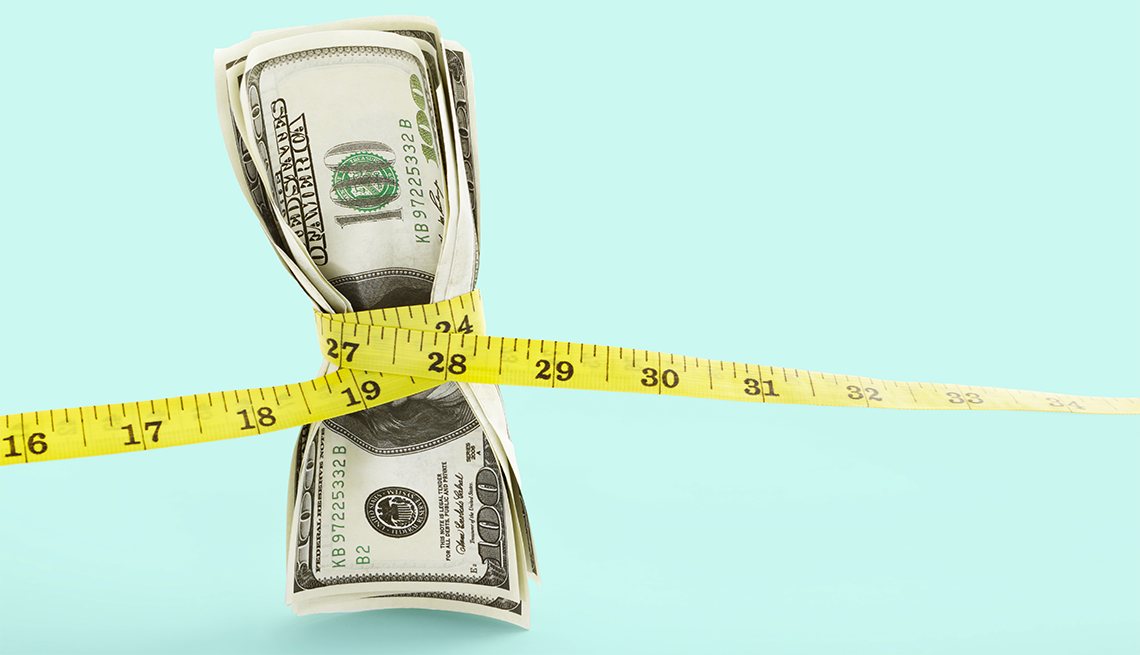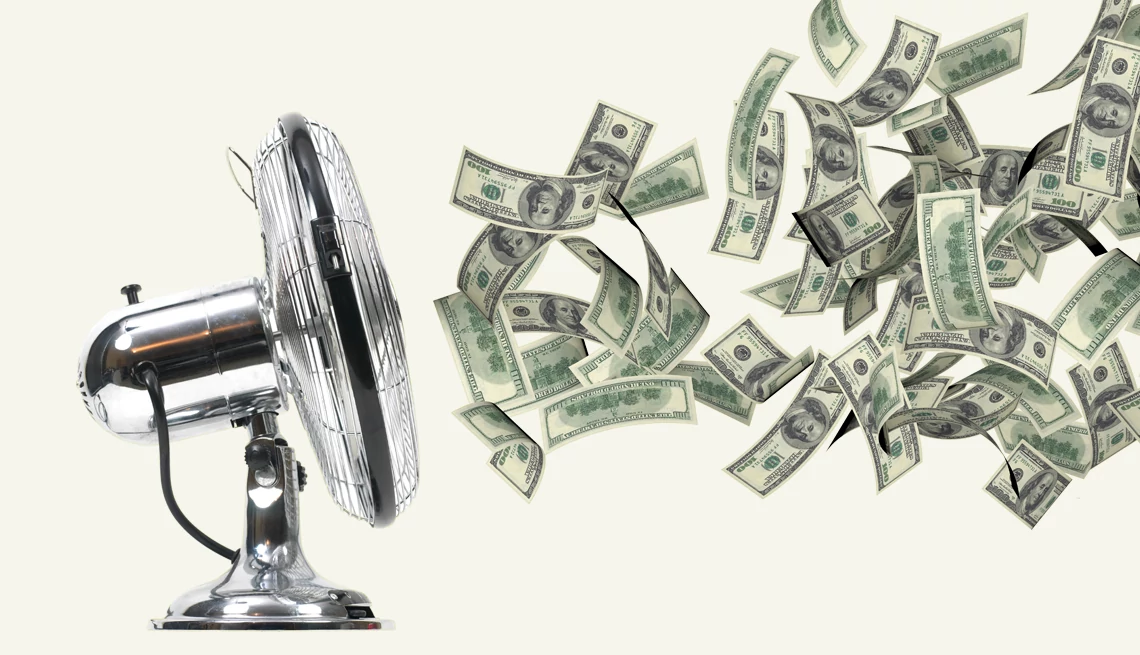AARP Hearing Center


If you’re worried about heart health, you can try to lose weight. Why not apply the same logic to your finances?
A recent survey from Allianz Life found that 61 percent of boomers worry more about running out of money than death. It’s an especially potent concern, considering the current swings in the financial markets and apprehension over how tariff policies will affect consumer prices.
For many people who are retired and living on a fixed income, or who are approaching retirement, now could be a good time to go on a money diet.
A money diet entails cutting out the excess that’s eating into your budget and spending money only on essentials for a set period. Trimming this budget fat can help you grow your savings and gain awareness of unhealthy spending habits.
“Since many older consumers are on a fixed income, a money diet would be a smart idea for them to consider, giving them more peace of mind on their money lasting through retirement,” says Jillian Stephenson, an assistant teaching professor at Heinz College at Carnegie Mellon University in Pittsburgh.
What is a money diet?
Also referred to as a “spending fast,” a money diet is a financial reset to eliminate unnecessary expenses, cutting out the spending equivalent of junk food and sticking to a slimmed-down budget. It can help you spot ways you’re wasting money, from automatic payments for streaming services you no longer use to overbuying food in bulk. It can also help you be more intentional about how you spend your hard-earned income or retirement savings.
How to start a money diet
It’s a two-step process, says Melissa Joy, a certified financial planner and president of Pearl Planning in Dexter, Michigan. Step one is to look at your three most recent bank statements to determine how much you’re spending and what you’re spending on. Step two is to identify easy places where you can cut back, such as restaurant meals, concerts and movies.
“Quick diet wins can include cutting down on excessive eating out and daily coffees, expensive hobbies [like] golf and gym memberships, lavish vacations, and entertainment subscriptions or cable TV,” Stephenson says.

















































































More From AARP
15 Surprising Things About Supermarkets
Your local grocery store has some tricks up its sleeve
Tariffs Could Raise Prices on These Products
Watch out for higher prices for avocados, smartphones and more, economists warn
Great Deals Get Better With Age
11 perks that start at 50